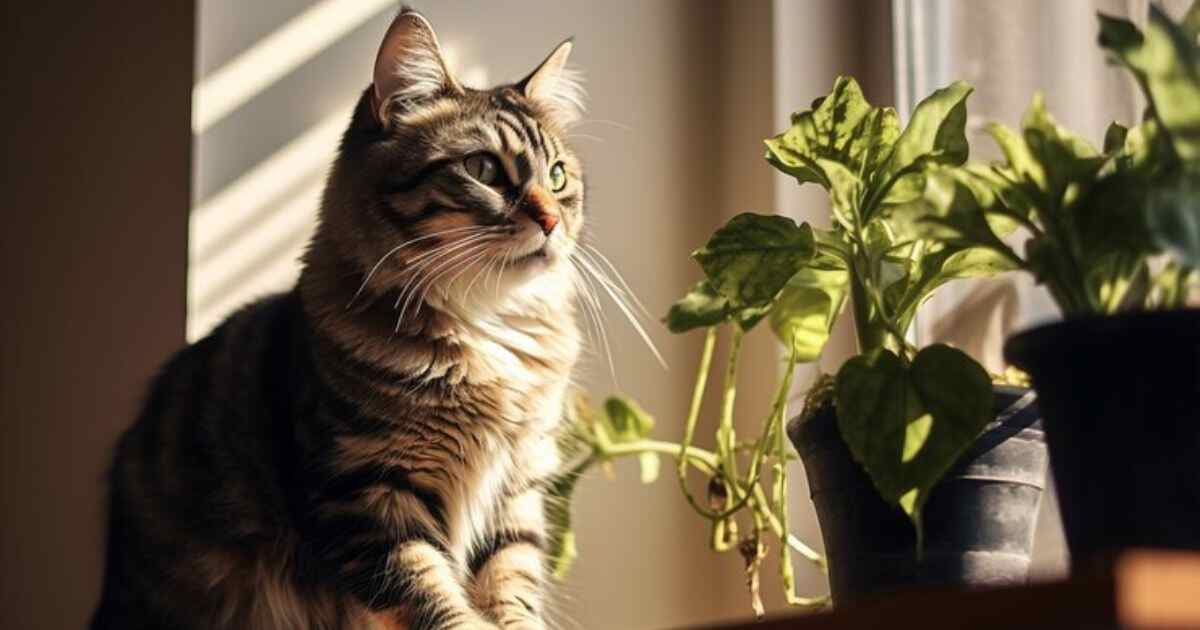Is Eucalyptus Safe for Cats?
Eucalyptus is a popular home plant because of its refreshing smell and medicinal uses. But if you have a cat, it’s important to know about the potential dangers it can pose to them. This article will look into whether eucalyptus is safe for cats and give tips on keeping your pets out of harm’s way.

Understanding Eucalyptus
Eucalyptus is a group of more than 700 types of flowering trees and shrubs originally from Australia. People use its fragrant leaves in essential oils, teas, and decorations. While eucalyptus is beneficial for humans, it can be dangerous for cats.
Why Eucalyptus is Dangerous for Cats?
The main concern with eucalyptus is its essential oil, which contains a compound called eucalyptol. Cats lack certain liver enzymes needed to process eucalyptol, making it toxic to them. Even small amounts can cause serious health problems.
- Ingestion: If a cat chews on eucalyptus leaves or consumes products with eucalyptus oil, it can result in symptoms like drooling, vomiting, diarrhea, and lethargy. In severe cases, it can lead to seizures and even death.
- Inhalation: Diffusing eucalyptus oil at home can also be risky. Cats can breathe in the oil particles, irritating their respiratory system and causing coughing, sneezing, and breathing difficulties.
Symptoms of Eucalyptus Poisoning in Cats
If you think your cat has come into contact with eucalyptus, look out for these signs:
- Drooling: Lots of saliva, which can be the first sign of poisoning.
- Vomiting and Diarrhea: Your cat might throw up or have loose stools as their body tries to get rid of the toxin.
- Lethargy: Your cat might seem unusually tired and less interested in playing or moving.
- Neurological Signs: In serious cases, cats might seem confused, have trouble moving properly, or even have seizures.
What to Do If Your Cat is Exposed to Eucalyptus?
If you think your cat has eaten or breathed in eucalyptus, take these steps right away:
- Remove the Source: Get rid of any eucalyptus plants or products your cat can reach.
- Call Your Vet: Contact your veterinarian right away. They’ll tell you what to do next and might want to check your cat.
- Keep Watch: Watch your cat closely for any changes in behavior or signs of sickness. If things get worse, go to the vet right away.
Preventing Eucalyptus Poisoning
To keep your cat safe, it’s good to avoid having eucalyptus plants or products at home. Here’s how:
- Avoid Essential Oils: Don’t use eucalyptus oils in diffusers, sprays, or on your cat.
- Choose Safe Plants: Pick cat-friendly plants like spider plants, Boston ferns, or cat grass.
- Store Products Safely: Keep any eucalyptus products out of reach of your pets.
Alternatives to Eucalyptus
If you like the smell of eucalyptus but want to keep your cat safe, try these options:
- Cat-Safe Essential Oils: Some oils like lavender and chamomile are safer for cats. Ask your vet before using any oils around pets.
- Herbal Sachets: Use dried herbs like rosemary or thyme for a nice smell without the risk.
Is eucalyptus diffuser safe for cats?
No way! Eucalyptus diffusers are dangerous for your cat. The oil particles they release, despite seeming harmless, contain eucalyptol, which is toxic to cats. This can irritate their breathing and cause serious problems. Instead, choose diffusers with safe scents like lavender or lemongrass to keep your furry friend safe and still enjoy a nice smell.
Is dried eucalyptus safe for cats?
Dried eucalyptus is as harmful to cats as fresh eucalyptus. It contains eucalyptol, which can cause problems even in dried leaves. If cats nibble on them, it can lead to vomiting, diarrhea, and sometimes seizures. To keep your cat safe, don’t use dried eucalyptus in your home decor. Instead, pick safe decorations for cats or choose a different fragrant plant that isn’t toxic to them.
Conclusion
Even though eucalyptus has benefits for humans, it’s harmful to cats. The oils and substances in eucalyptus can lead to serious health problems for your cats. By knowing the risks and preventing contact, you can keep your pets safe and healthy. If you’re unsure about any plants or products in your home, talk to your vet for advice.